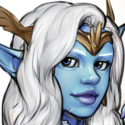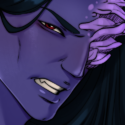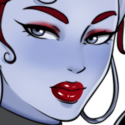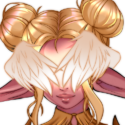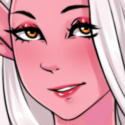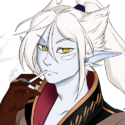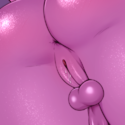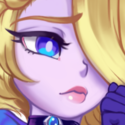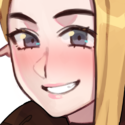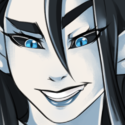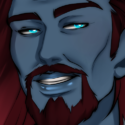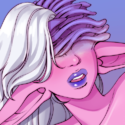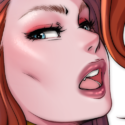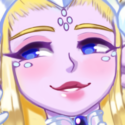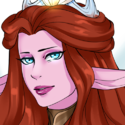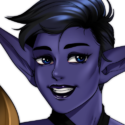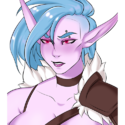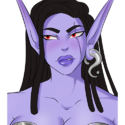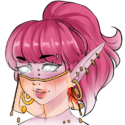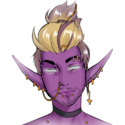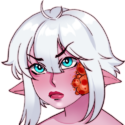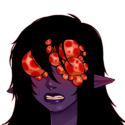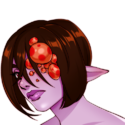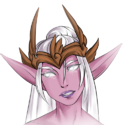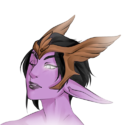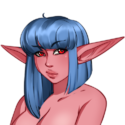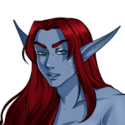Difference between revisions of "Boreal Elves"
m (→Characters) |
m (→Characters) |
||
| Line 130: | Line 130: | ||
|{{CharHead|Hethia|Hethia-WikiHeadshot}} | |{{CharHead|Hethia|Hethia-WikiHeadshot}} | ||
|{{CharHead|Jael'yn|Jael'yn-WikiHeadshot|text=(corrupted)}} | |{{CharHead|Jael'yn|Jael'yn-WikiHeadshot|text=(corrupted)}} | ||
| − | |{{CharHead|Jarl Talraed|Talraed-WikiHeadshot}} | + | |{{CharHead|Jarl Talraed|Jarl Talraed-WikiHeadshot}} |
|{{CharHead|Leanore|Leanore-WikiHeadshot|text=(infested)}} | |{{CharHead|Leanore|Leanore-WikiHeadshot|text=(infested)}} | ||
| − | |{{CharHead|Princess Iveryn|Iveryn-WikiHeadshot}} | + | |{{CharHead|Princess Iveryn|Princess Iveryn-WikiHeadshot}} |
|- style="vertical-align:top;" | |- style="vertical-align:top;" | ||
|{{CharHead|Queen Alissa|Queen Alissa-WikiHeadshot}} | |{{CharHead|Queen Alissa|Queen Alissa-WikiHeadshot}} | ||
Revision as of 10:58, 13 August 2024
"You mean the boer'alvar? W-we're what you southerners usually call pale elves. Or boreal elves. There used to be lots of us, but after the Godswar... I think the Winter City is all that's left. In fact, at least according to Alissa, the reason this whole region is called the Frost Marches is because it used to be the borderland between the Belharan Empire and our own kingdom."
—Etheryn var Ridell, Second Princess of the Boreal Elves
Writer Credit
| Savin |
|---|
|
Codex
Name: Boer'alvar, or in Belharan: Boreal Elf (pl. Boreal Elves)
Sexes: Male, Female, and Half-sex (see below)
Height: Average height ranges from 6'0 to 6'6 among males and females. Half-sex individuals average at about 5'8.
Weight: Slightly heavier than humans.
Skin: Boreal Elves have pale skin, usually tinged with blue.
Hair: Much as humans. Boreal Elven hair colors include blondes, browns, blues, and reds, with ice-blonde the most common coloration.
Eyes: Similar to humans. Elven eyes are somewhat keener and fare better against glare and bright light.
Ears: Boreal elves have thicker ears than the average human, with pointed tips that peak at a few inches in length.
Lifespan: Boreal elves live an unnaturally long time, perhaps due to their far-northern habitat and slow metabolisms. The average lifespan is perhaps 200 years, though some individuals may grow far older.
Maturity: 35 years.
Description
Boreal elves are one of the many (if Silly Mode: flavors |else: varieties) of elf common in Savarra, though in the modern age, they are by far the most rare. Once masters of the greatest kingdom in the north, the boreal elves have been reduced to a single isolated city, their glacial capitol at the Winter City, and have become so scarce that most folk south of the River Ridell believe that they are either extinct, or were only a myth to begin with.
Compared to their more prolific southern cousins, the wyld elves, boreal elves are on average taller and leaner, with greater natural muscle and leaner figures. In most other respects, though, a boreal elf is similar to any other elf: they have long and tapered ears, human-esque physical features, and a natural grace that allows them to move with near-invisible stealth through the northern tundra. Boreal elves have an incredible natural resistance to extreme cold temperature, as befitting their natural home, and can be seen wearing only sheer silks or even walking nude in sub-zero winters. Only in the extreme north, beyond the glacial walls into which the Winter City is made, do these nordic elves need to concern themselves with heavy furs and hides to remain comfortable, though even then they will suffer no actual harm from the cold.
Male and female boreal elves exist as in most other races, and while they are roughly the same height and weight, males tend to be more muscular and can grow thick beards (making them the only elven race to do so). Males have human-shaped members and compact testicles —better to avoid the cold, they say— and women have slightly broader hips and breasts between B and D cup.
A third sex also occurs naturally among the boer'alvar, translated roughly as the "half-sex." Half-sex elves have male genitalia, but grow up to be near a foot shorter than other boreal elves on average and naturally grow small, pert breasts between an A and C cup. Half-sex can typically pass themselves off as either gender, though most are referred to as feminine. Belharan scholars of yore once debated the reason for this third sex's existence, with the consensus being that, given the dramatic lack of resources in the north, a tenth of the population being smaller and likely non-reproductive helped to lessen population growth and food consumption. Others insisted that the half-sex were a natural harem class, as indeed most of their number were occupied as courtesans or became additional spouses to a noble couple.
Reproduction
Boreal elven reproduction is rather mundane, starting with a male or half-sex inseminating a female elf. Boreal elves have markedly low fertility and virility compared to their wylder cousins, and pregnancies last a full 18 months before fruition. Births are almost always single children, and in rare cases of multiple births, all but one will always be half-sex. About six months into a pregnancy, an expectant mother will begin to lactate, accompanied by a significant increase in bust size; once started, lactation is effectively permanent due to the slow maturation rate of boreal elven children.
Due to their low virility, fertility rites are extremely common amongst the elves of the Winter City. It's no wonder that, after the devastating losses incurred during the Godswar, the people of the last boer'alvarin city turned to Lumia, goddess of motherhood, and abandoned the old druidic faiths that had seen them nearly destroyed.
History
The boreal elves once commanded a vast kingdom bordering the Belharan Empire's northern frontier, stretching along the River Ridell from the east coast all the way to Tychris, and according to their own boasts, extending north to the very top of the world and the palace of Lumia herself.
First contact with Belhar occurred more than a thousand years ago, when the first human settlers came to the region known now as the Frost Marches and encountered the vast stretch of fertile, cold forest ripe for logging. These hopes were quickly dashed when they encountered the boer'alvar wolf-riders that patrolled the border. Belharan diplomats were forced to travel north to recover the settlers' bodies, backed by a hastily-raised army that, it became clear, had little chance of overcoming the stone fortresses and cavalry armies. The Belharans were forced to come to terms with the King of Winter, and borders were established which have lasted unchanged to this very day. It is along this border that the Frost Marches, a series of minor baronies and city-states, was established by the Empire to keep the peace and ensure that no further border skirmishes broke out between settlers and the elven natives.
Beyond this, the boer'alvar factor into history very little. There were a few royal intermarriages between the empire and the kingdom, ensuring ties of friendship between the two states, and on rare occasion the riders of the kingdom would assist in clearing out orcish invasions from the windswept eastern coastlands. The boer'alvar participated in the Godswar alongside the Empire, assailed by the onslaught of Wraiths and their corrupted minions, and suffered the brunt of the initial landfall in the north. Most of their kingdom was destroyed, forcing the surviving elves to retreat to their most fortified city in the boreal glaciers. Ruined forts and cities now dot the Frostwood beyond the river, slowly crumbling while the elves lick their wounds.
Society & Culture
The culture of the boer'alvar has changed very little over the thousand years since they entered recorded history. Boreal elves are considered traditional in the extreme, practicing the same rites and rituals and customs day in and day out over the long centuries of their lives. They are also family-oriented, living in multi-generational homes that share the responsibilities by ability rather than gender. Family is considered the center of civilization, and acts that would break up or disrupt the tight-knit family structure are considered anathema. Multiple marriages are allowed only to the head-of-household; his or her spouses may not marry again. Adultery is a criminally punishable offense.
Boreal elves have a long and storied warrior tradition, masters of the longspear from atop their fearsome battle-wolves, called wargs in their tongue. Hunting and falconry are the preferred past-times of the nobility, and all elves are expected to learn fighting with the spear and shield so that they may defend their homeland. Cowardice on the battlefield is the greatest shame a boreal elf could endure, while bravery and skill at arms are the highest of virtues. The King or Queen of Frost is expected to be a peerless warrior indeed.
Perhaps the largest shake-up in boreal elven culture has been a religious transition taking place since the end of the Godswar. After cataclysmic losses of people and territory, the boer'alvar have retreated to the walls of the Winter City to rebuild and repopulate. And in so doing, they have largely abandoned the shamanistic nature-worship of their ancestors, instead adopting the worship of the Belharan goddess of fertility, Lumia. The Queen of Sunlight promises to revitalize a race on the verge of irrevocable collapse — an offer that was far too important to pass up. A brief period of civil conflict and several exilements followed as the druids were purged from the Winter City. The new religion is all but enforced from the palace now, and religious holdouts have found themselves pushed ever more to the fringes of society.
Codex Acquisition
Only one of the conditions below must be met to unlock the Boreal Elves Codex entry:
- Met Etheryn at the Ruined Wayfort
Other Information
Boreal Elves have also been called Snow Elves, Frost Elves, and Pale Elves.
| Aliases |
|
|---|---|
| Adjectives |
|
| Cute Adjectives |
|
Transformatives
Gameplay Attributes
| Racial Bonus | Willpower +1
|
|---|---|
| Affinities |
Characters


